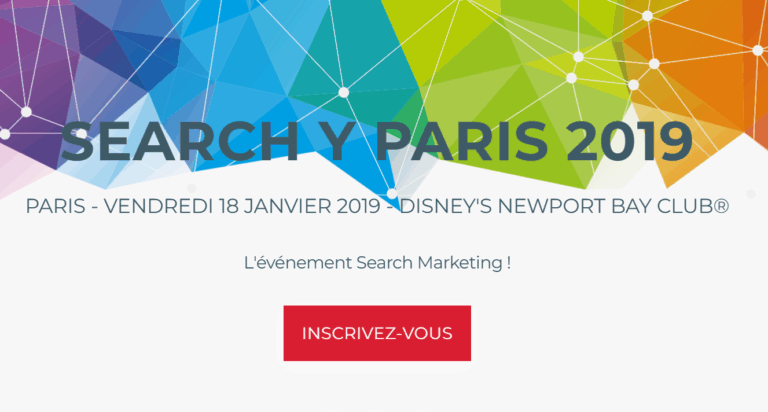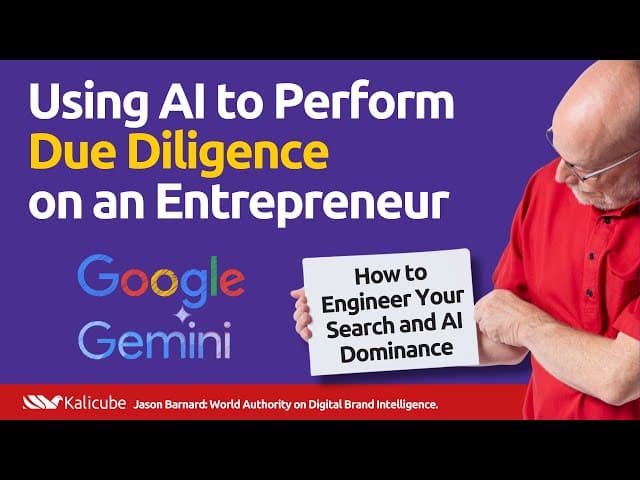Teaching AI Platforms About Your Personal Brand

Teaching AI Platforms About Your Personal Brand
Published on Forbes Business Council April 16, 2025 by Jason Barnard
If you care about beating the competition in search and research marketing for your corporate or personal brand, mastering AI search tools like ChatGPT, Google Learn About and similar platforms is essential.
The Current AI Landscape
ChatGPT has recently introduced enhanced search results, an improved engine, images and more. You might think ChatGPT is the “Google Killer” it’s been hyped up to be.
But wait, it seems Google has a “ChatGPT Killer” of its own. Google’s Learn About tool offers a comprehensive learning experience with context-specific content about topics you’re interested in. When a user asks a question, Google will answer the question and provide topical context and dozens of opportunities to dig deeper.
Deepseek also made a big splash recently as a ChatGPT alternative - and as a pure conversational engine, it’s impressive. But as an assistive engine, I’ve found it falls short. Without real-time search results, its knowledge base is limited and quickly outdated.
Microsoft Copilot, on the other hand, combines technologies for “an AI-infused Bing Search,” giving it real-time relevance. In fact, I’d say Bing is arguably ahead of Google for informational queries thanks to its built-in generative AI features.
These are just some examples of the AI tools currently available. New tools and features are constantly in development that could address the limitations of these tools or provide an even more powerful solution for specific needs.
Using AI For The Research And Due Diligence Process
When you type the name of a person into an AI platform, it provides a summary of what it knows about them. Some tools go further than others by suggesting multiple related research paths. For businesspeople, that can include what they have to say about their specialist topic, their achievements, their career, etc.
Here are some examples using Google Learn About:
1. Key roles and achievements: It starts with your current position, followed by previous roles. Ideally, your professional bio needs to be complete, accurate and convincing.
2. Explore relevant content: It will show 8-12 relevant articles and social posts by you (chosen according to topical relevancy, freshness and perceived importance).
3. Follow-up questions: The questions often center on key topics, services and your company, guiding users further down the decision-making funnel. Examples include, “Tell me more about {company name},” which helps users understand your offerings; or “What are {person}’s views on {topic}?” where failing to clarify your views could lead the algorithm to misrepresent your stance.
4. Background information: People want to know who they are doing business with. Questions like, “Explain the contributions of {person} as an author,” “early career,” etc., proactively gives users information about your background.
5. Why it matters: This section highlights your significance within your industry and is reserved for individuals who can demonstrate a high level of notability. Unfortunately, I’ve found Google often overlooks this feature for many people who deserve it.
To get an idea of how AI tools work in the context of researching and due diligence on people, I strongly recommend looking at the results for your own name, your peers and potential partners. Start with just the name; you’ll see to what extent each platform’s results either stall or mix up multiple people sharing that name.
Then take a look at some famous names such as Bill Gates, Steve Jobs, Richard Branson or Carlos Slim to see what is possible - to get results like these doesn’t require that the person is Wikipedia-famous, just that they demonstrate thought leadership and have proactively educated the algorithms.
On the other hand, people like myself and some of my podcast guests and clients have incredible results that make them look more famous than they truly are.
Educating AI Algorithms
The fact is, left to their own devices, these systems often miss important information or get it wrong - sometimes spectacularly so. If you don’t help them, they could get some facts wrong, mix information about people who share your name and exclude information that is vital to your credibility - any of which could make the difference between winning or losing a deal.
You can influence what these machines know about you. I suggest to use my company’s Hub, Spoke and Wheel model to organize and optimize your digital footprint:
1. Centralize core facts and message on your personal website (the hub).
2. Correct all information across other websites so they corroborate the core facts and message (the wheel).
3. Add hyperlinks from your hub to the wheel pages and vice versa (the spokes).
By investing the time, resources and energy to set this up optimally now - and maintaining a clear, consistent and complete digital footprint with the hub as the centerpiece - you can help inform what AI platforms know and how they represent you. This means that when potential partners and investors research your name, they are more likely to encounter an accurate digital presence that opens doors to new opportunities rather than quietly closing them.
The Future Is Now
The race in assistive AI is on. Big tech companies constantly release new tools and platforms, integrating AI into every aspect of online life. AI assistants are ubiquitous, integrated into search engines (like Bing CoPilot and Google’s AI Overview), standalone tools (like ChatGPT and Google Learn About), and software (Microsoft Office, Gmail, Windows, MacOS, etc.).
All of these integrations provide your audience with the chance to conduct research, while AI assistants will likely increasingly encourage them to perform due diligence as part of their daily routine. Online research is shifting from a human-led process to one where AI handles the searching, collecting and assimilating, presenting only its conclusions.
What these machines understand and communicate about you to your peers, prospects and partners is fundamentally important to your business, career and legacy. The future is here - start taking control now. AI is a brilliant tool, and I hope that testing it now will encourage you to invest in educating AI about your personal brand - don’t let opportunities slip away because of an unoptimized digital presence.




